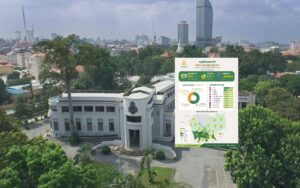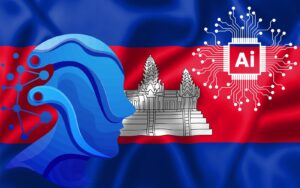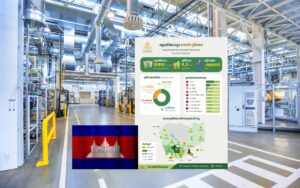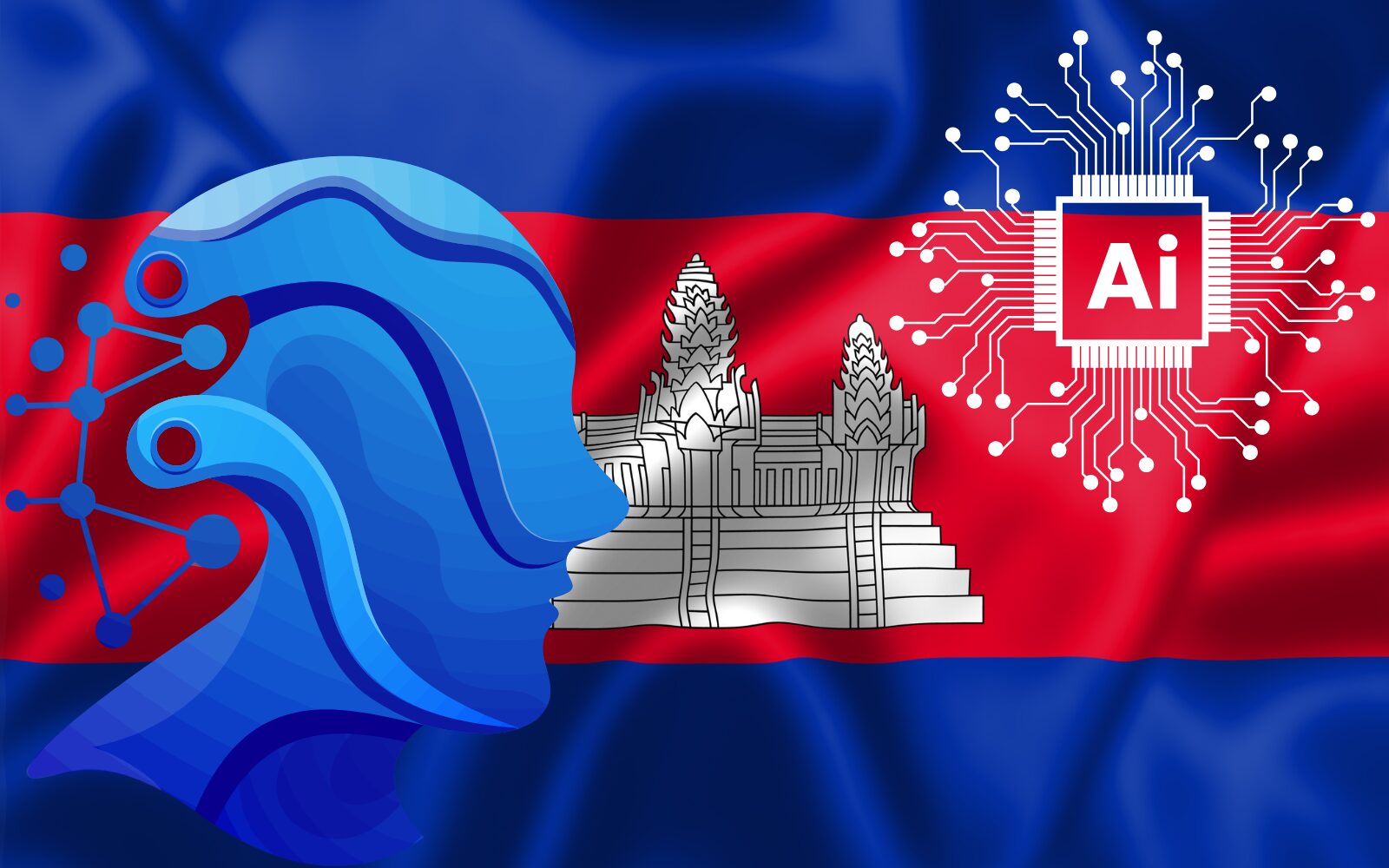
Cambodia is actively embracing the era of Artificial Intelligence, a transformation poised to reshape global landscapes at an unprecedented pace. A comprehensive “Artificial Intelligence Readiness Assessment Report,” published in 2025 by the United Nations Educational, Scientific and Cultural Organization (UNESCO), sheds light on the nation’s progress, challenges, and strategic roadmap towards an ethical and inclusive AI ecosystem.
The report, a collaborative effort between Cambodia and UNESCO, utilizes the Readiness Assessment Methodology (RAM) to evaluate the country’s preparedness for ethically and responsibly implementing AI for all its citizens. This initiative is a testament to Cambodia’s strong commitment to harnessing the benefits of AI while safeguarding its people and ensuring that AI technologies deliver fair, sustainable, and inclusive outcomes.
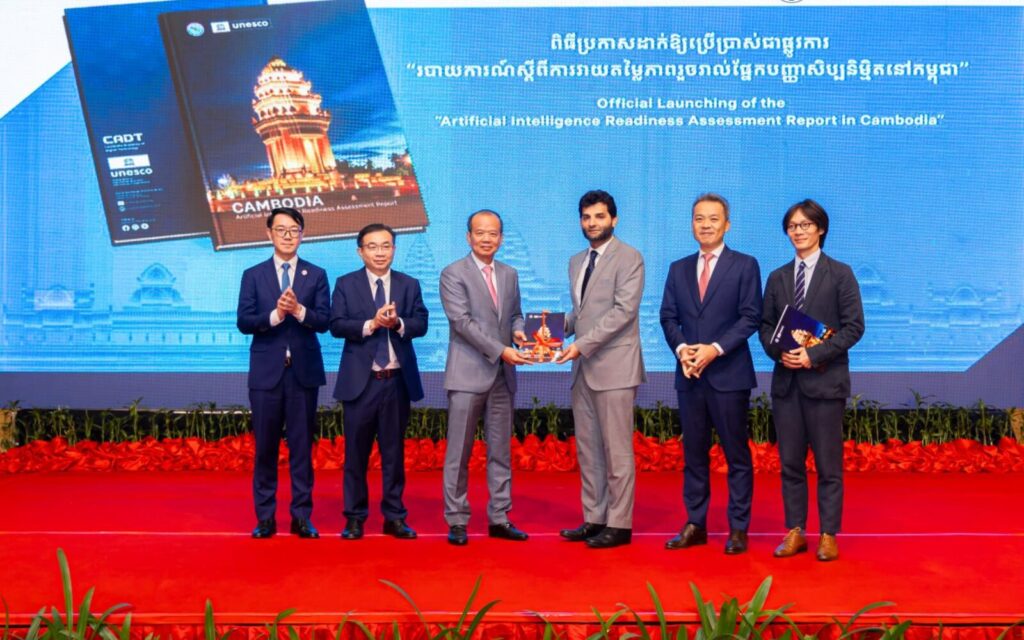
Photo from the Cambodia Academy of Digital Technology
Key Dimensions of Cambodia’s AI Readiness:
The assessment reveals a dynamic landscape marked by significant strides and ample opportunities for growth across several crucial dimensions:
Legal and Regulatory Frameworks:
Cambodia is a proactive participant in ASEAN AI governance discussions and is undertaking vital steps to draft foundational legislation for Personal Data Protection and Cybersecurity. While a finalized national AI strategy and specific laws for AI procurement and information access are still in development, the introduction of Child Online Protection Guidelines highlights a commitment to safety. The Ministry of Post and Telecommunications (MPTC) is leading the charge in developing policies, laws, and regulations related to cutting-edge technologies, including AI, and is coordinating the formulation of a policy framework and strategy for AI governance.
Social and Cultural Aspects:
Encouraging developments are observed in bridging the gender gap in internet usage, with numerous initiatives promoting digital skills and opportunities for women and girls. Significant work is underway to develop essential Khmer language datasets, crucial for inclusive AI development. Cambodia is also thoughtfully considering the role of AI in its future strategies for Digital Health and the preservation of Cultural Heritage.
Scientific and Educational Landscape:
The nation shows promising growth in AI research publications, with a noteworthy emphasis on ethics. Innovative postgraduate programs are integrating ethical considerations from their inception, and collaborations with organizations like UNESCO are enriching the educational sphere. Despite these advancements, the report highlights areas for improvement in R&D investment and school infrastructure.
Economic Potential:
While comprehensive economic data on AI’s impact is still developing, pilot projects showcase local innovation, and analyses suggest AI’s potential to significantly enhance Cambodia’s GDP. Understanding AI’s impact on the labor market is identified as a crucial next step to ensure that technological adoption fosters inclusive growth.
Technical and Infrastructural Foundations:
Cambodia has established a solid foundation with nearly universal electricity access and improved mobile connectivity. Future enhancements are targeted towards improving internet access and speed, expanding data center capacity, engaging with international standardization bodies, and strengthening statistical performance to further empower Cambodia’s burgeoning AI ecosystem.
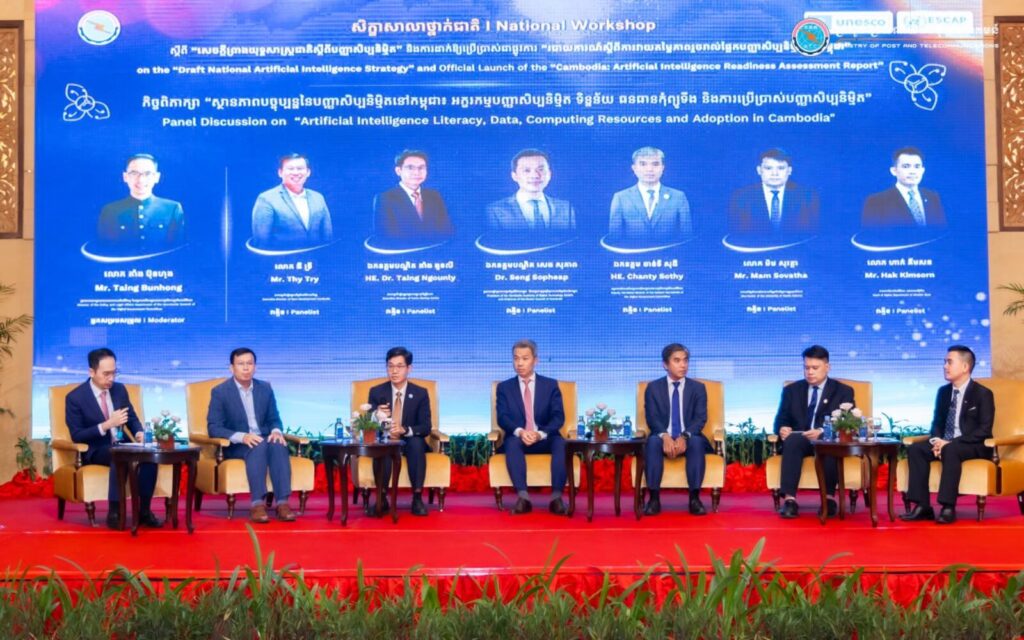
Photo from the Cambodia Academy of Digital Technology
Challenges and Recommendations for Cambodia’s AI Readiness
The report also identifies several challenges, including low AI literacy, a shortage of skilled professionals, infrastructural constraints, limited high-quality datasets, and fragmented governance. To address these, key recommendations include:
- – Finalizing a comprehensive National AI Strategy.
- – Building upon existing frameworks and creating clear multi-stakeholder governance structures.
- – Refining regulations, including enacting new laws and reviewing procurement processes.
- – Deploying flexible regulatory frameworks and developing comprehensive AI guidelines.
- – Ensuring alignment with international standards.
- – Fostering a safe digital environment through public awareness campaigns and strengthening child protection measures.
- – Developing targeted policies for sectors such as health, environment, education, and culture.
- – Bolstering AI awareness and skills through public literacy initiatives, integrating digital and computational thinking into the curriculum, and investing in teacher training.
- – Gathering essential ecosystem data, including labor market insights and R&D figures.
- – Establishing an AI Resource Centre to improve access to computing infrastructure.
The “Cambodia AI Readiness Assessment Report” offers a clear roadmap for the nation to navigate the complexities of AI development. By prioritizing ethical governance and responsible regulation, Cambodia aims to foster an AI ecosystem that is fully consistent with innovation and economic growth, ultimately benefiting the public good and ensuring a future where no one is left behind.
Download the report: Click here!
Source: Cambodia Academy of Digital Technology
![]()

